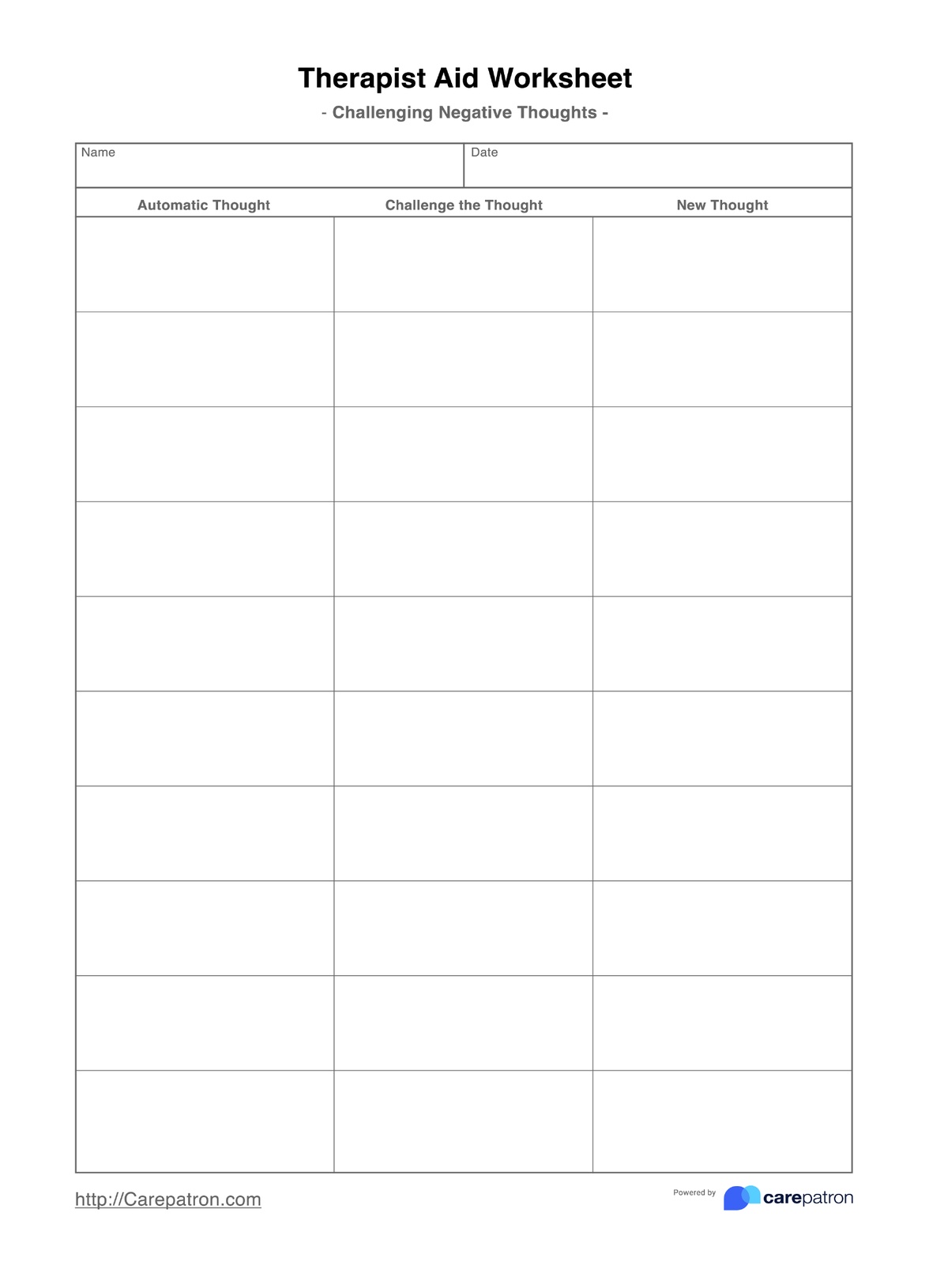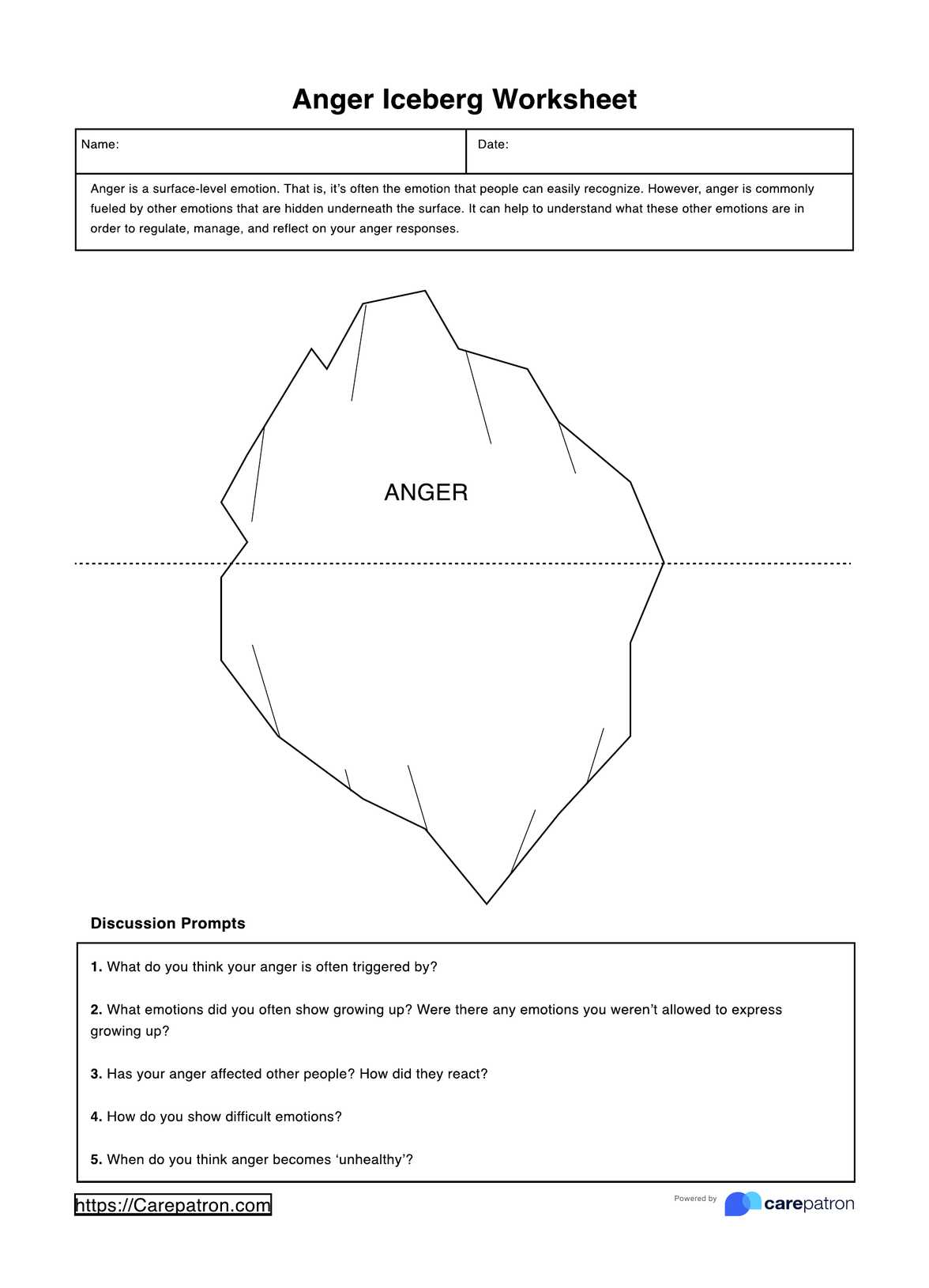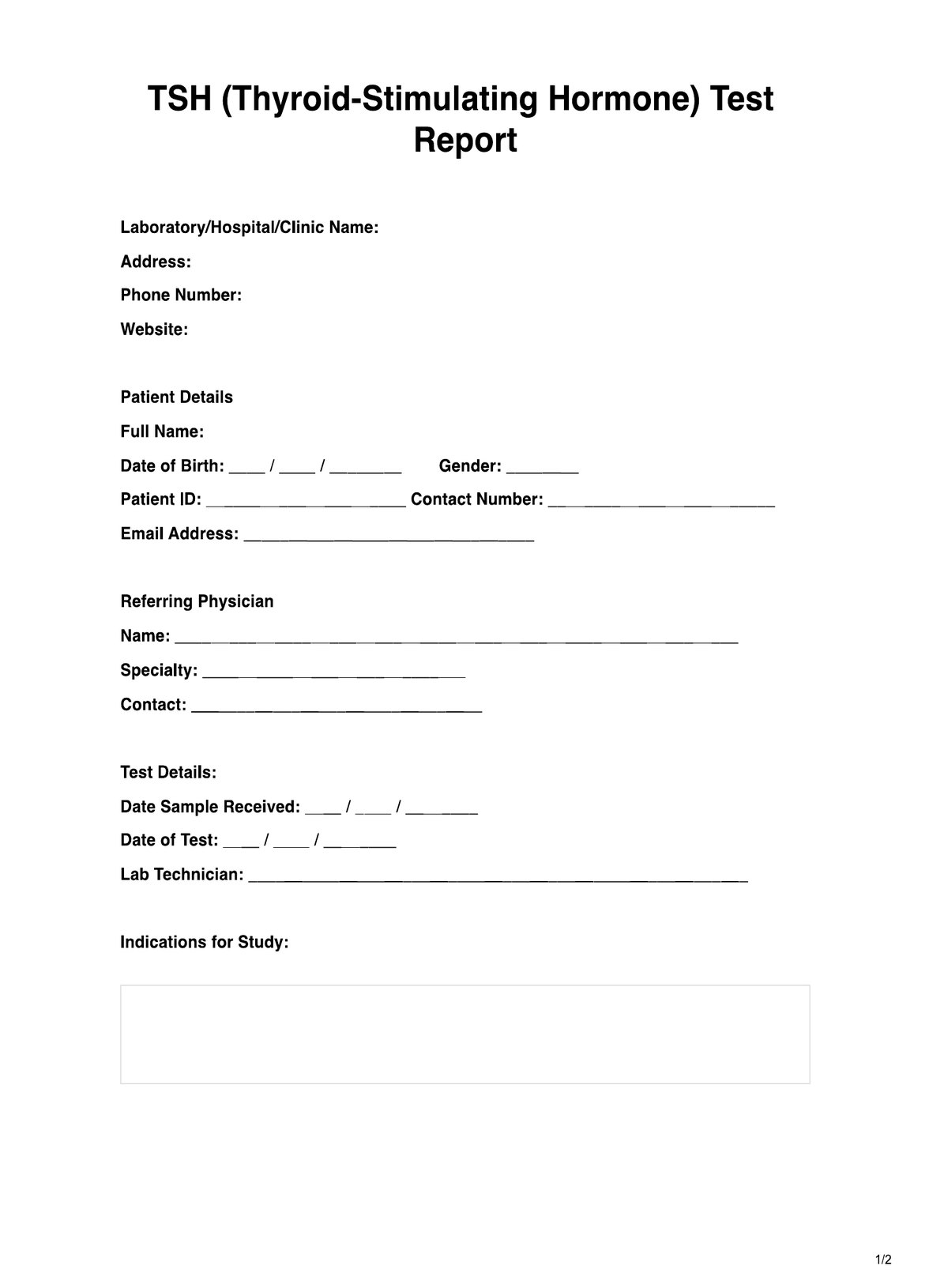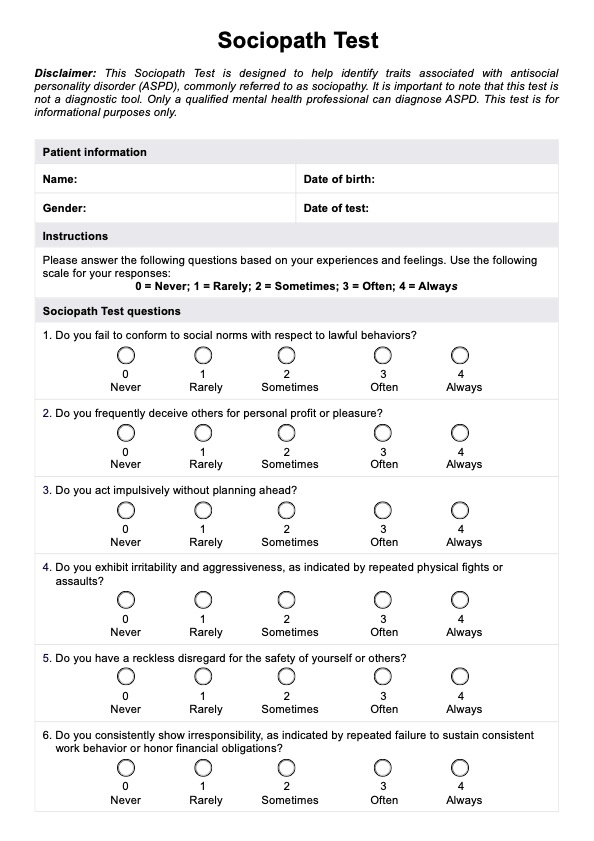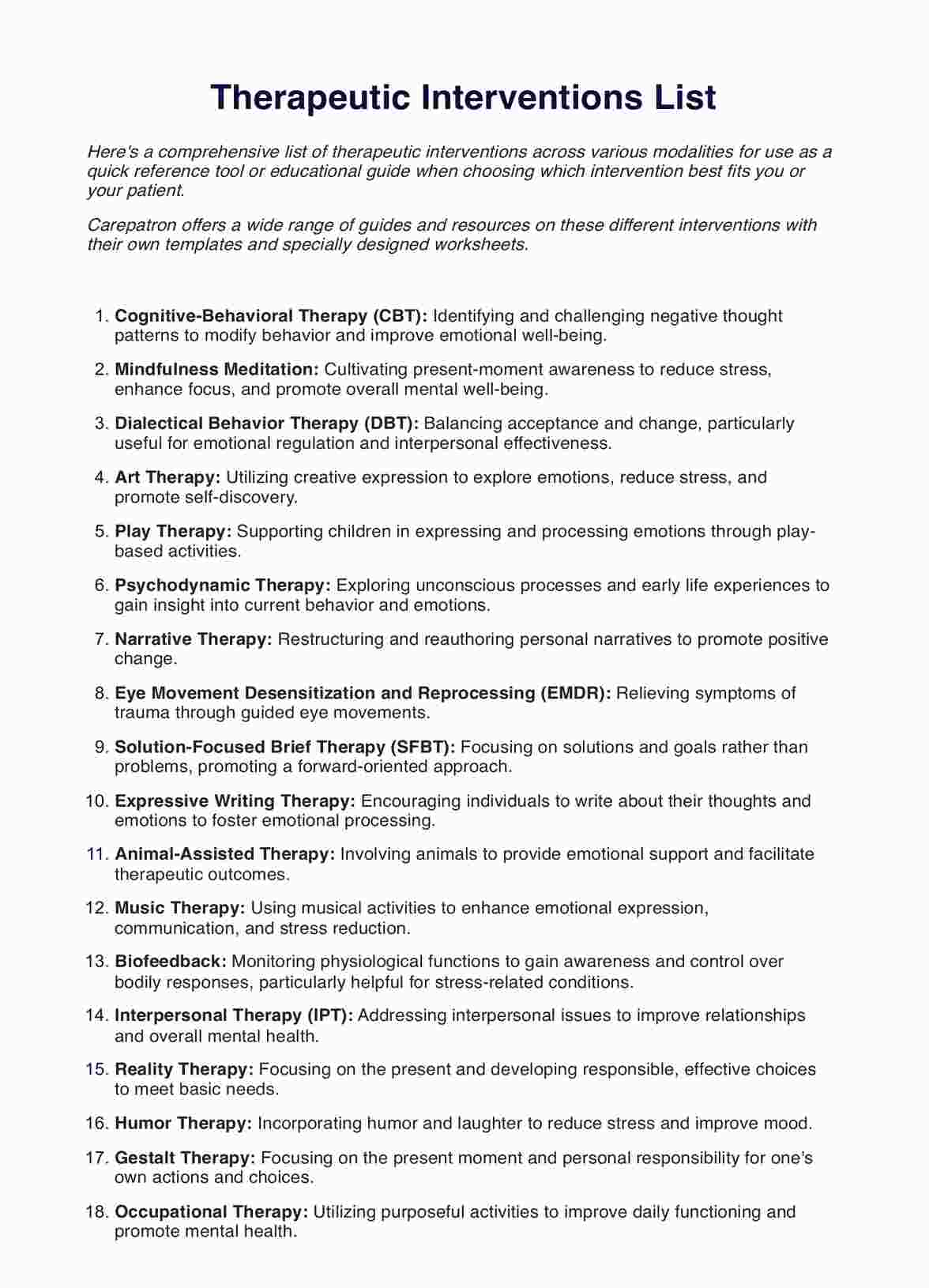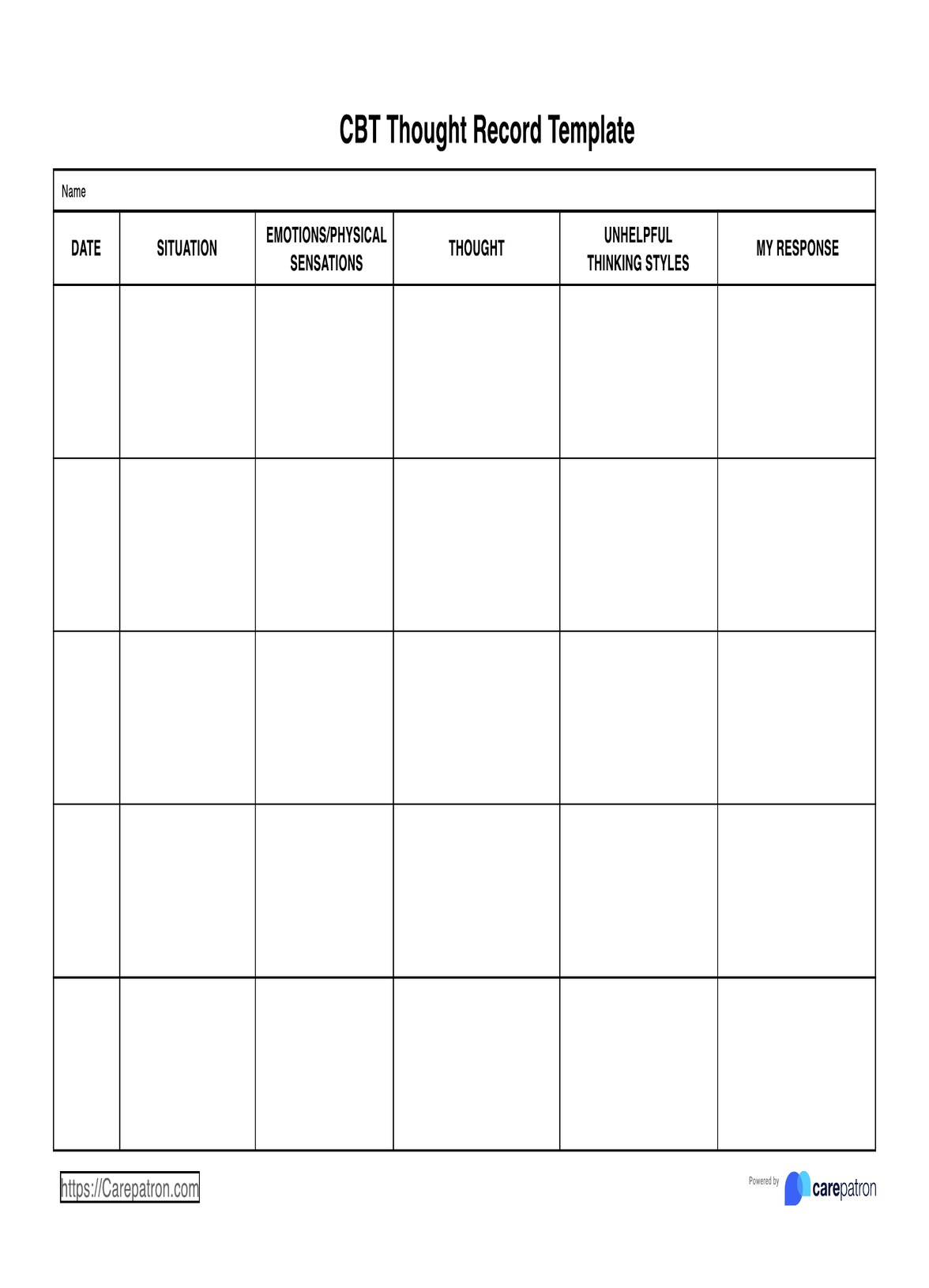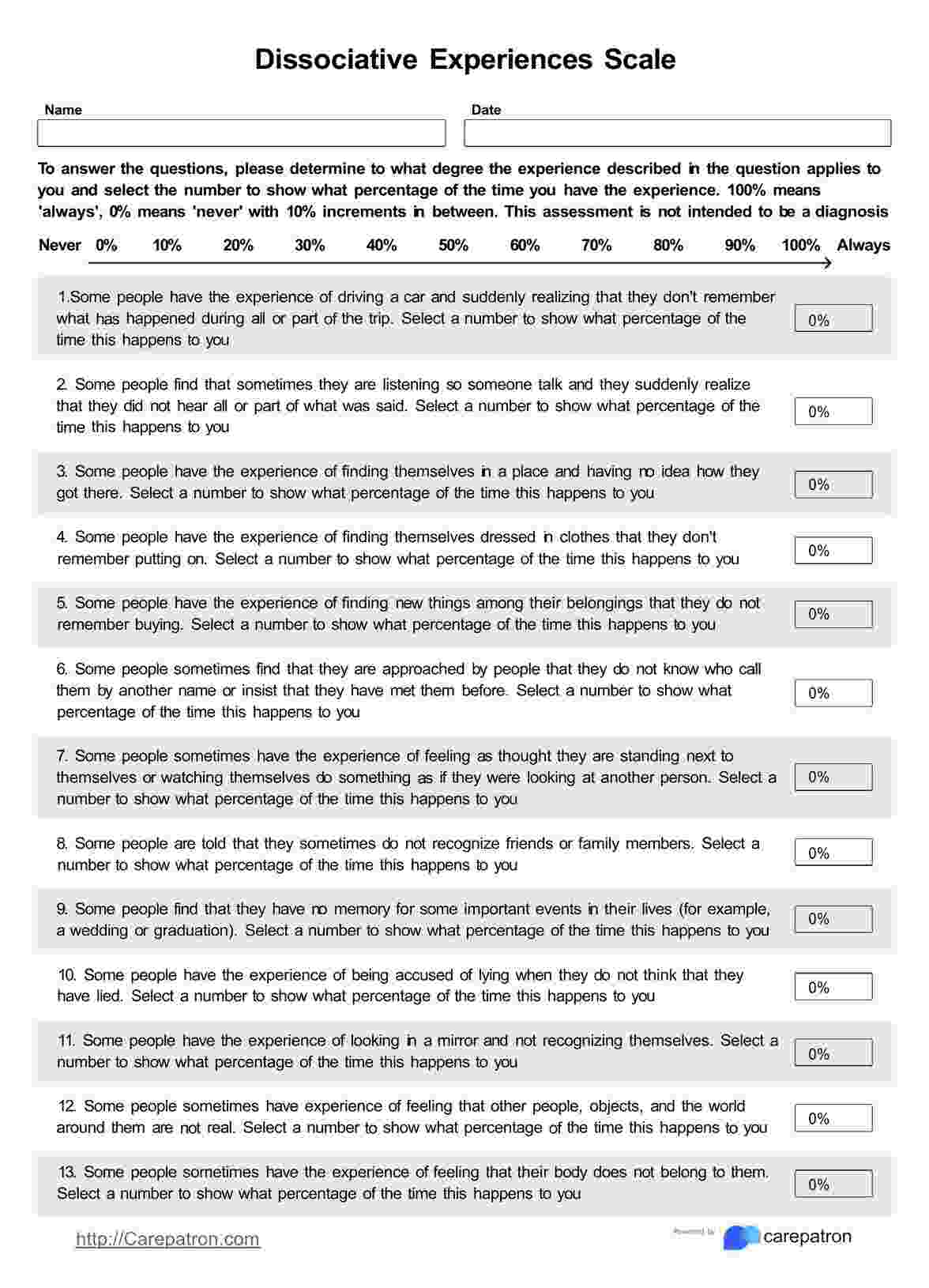Avoidance and Suffering Diary ACT Worksheet
Improve healthcare with Avoidance and Suffering Diary ACT Worksheet. Transform habits for better well-being. Download now!


What is Acceptance and Commitment Therapy?
is a therapeutic approach rooted in psychology that focuses on helping individuals develop psychological flexibility and lead more fulfilling lives. ACT is based on the premise that suffering is an inherent part of the human experience, and rather than attempting to eliminate negative thoughts and emotions, individuals can learn to accept them while committing to actions aligned with their values.
At its core, ACT is built upon six fundamental principles:
Cognitive Defusion: This involves learning to observe thoughts and emotions without being controlled or defined by them. Individuals develop the ability to detach from their studies, allowing for a clearer perspective.
Acceptance: ACT encourages embracing all feelings and experiences, even uncomfortable ones, without judgment. Acceptance is about acknowledging emotions as they are without attempting to change or suppress them.
Being Present: Mindfulness is a central aspect of ACT. Practicing mindfulness helps individuals engage fully in the present moment, fostering awareness and reducing preoccupation with past regrets or future worries.
Self-as-Context: This principle emphasizes that people are not defined solely by their thoughts, emotions, or experiences. They can develop a sense of self that transcends these aspects.
Values Clarification: Identifying and clarifying personal values is crucial in ACT. Individuals are encouraged to explore what truly matters and make choices aligned with those values.
Committed Action: ACT encourages purposeful actions that align with one's values, even in discomfort or fear. This helps individuals move toward a more fulfilling life, regardless of challenges.
ACT is particularly effective in helping individuals face problems and fears. Individuals become better equipped to handle distressing emotions and situations by promoting acceptance and mindfulness. Rather than avoiding or suppressing fears, they learn to approach them with openness and resilience.
Through values clarification, individuals gain insight into what truly matters to them, providing a sense of direction and purpose. This empowers them to take committed actions even when confronted with fears, as they are motivated by their deeper values.
ACT offers a holistic approach to psychological well-being, teaching individuals skills to navigate challenges, reduce suffering, and cultivate a more meaningful and satisfying life. It has been successfully applied to various psychological issues, including anxiety, depression, trauma, stress, and chronic pain, making it a versatile and valuable therapeutic approach.
Avoidance and Suffering Diary ACT Worksheet Template
Avoidance and Suffering Diary ACT Worksheet Example
How to use the Avoidance and Suffering Diary ACT Worksheet:
The Avoidance and Suffering Diary ACT Worksheet is a practical tool designed to guide individuals in enhancing their psychological flexibility and overall well-being through Acceptance and Commitment Therapy (ACT) principles.
This worksheet is intended to be used under the guidance of healthcare practitioners to help individuals confront avoidance behaviors and emotional suffering in a structured and mindful way.
How to Use the Avoidance and Suffering Diary ACT Worksheet:
Situation Identification:
Identify a situation in which you've experienced avoidance and emotional distress. Describe it briefly, including the emotions and sensations you felt.
Emotional Awareness:
Recognize and describe the emotions accompanying the situation. Take note of any physical sensations linked to these emotions.
Thought Exploration:
Write down the thoughts that arose during the situation. Be specific about negative thought patterns or self-criticisms that emerged.
Facing Avoidance Urges:
Rate the intensity of your urge to avoid the situation on a scale of 0 to 10. Acknowledge the avoidance urge you felt.
Acceptance and Mindfulness Practice:
Practice mindfulness by observing your thoughts and emotions without judgment. Record any attempts you made to accept your feelings during the situation.
Reflect on Values:
Contemplate your core values—what truly matters to you in life. Reflect on how your actions align with these values in the face of discomfort.
Commit to Action:
Select an action aligned with your values, even if it requires facing fears. Detail your commitment to this action and a specific plan and timeline.
Learn and Reflect:
After taking committed action, reflect on the outcome. Analyze any changes in emotions or thoughts. Extract lessons and consider how you might approach a similar situation.
Track Progress:
Use the designated space to monitor your progress over time: record situations, emotions, avoidance urges, and committed actions. Notice any patterns or shifts in your approach to challenges.
When would you use this Avoidance and Suffering Diary ACT Worksheet?
The Avoidance and Suffering Diary ACT Worksheet is a valuable resource that can be employed in various scenarios to assist individuals in addressing avoidance behaviors and emotional distress. This assessment is most effective when used under healthcare professionals' guidance, such as psychologists, therapists, counselors, and social workers.
Anxiety and Stress Management
This worksheet is handy for individuals dealing with anxiety and stress. It helps them confront situations that trigger these emotions and guides them to approach them mindfully, fostering emotional resilience.
Phobia and Fear Management
When individuals struggle with specific phobias or intense fears, the worksheet can aid in gradually exposing them to their fears while helping them develop coping strategies and acceptance.
Depression and Mood Disorders
People experiencing depression often engage in avoidance behaviors. The worksheet encourages them to confront situations that trigger distress, helping them break the cycle of avoidance and promoting emotional growth.
Chronic Pain and Illness
Healthcare practitioners can use the worksheet with chronic pain or illness patients. It supports them in managing emotional suffering from their conditions and empowers them to maintain a fulfilling life despite challenges.
Personal Growth and Well-being
Even for individuals seeking personal growth and increased well-being, the worksheet can be a tool for practicing mindfulness, aligning actions with values, and enhancing psychological flexibility.
What are the benefits of using this Avoidance and Suffering Diary ACT Worksheet?
The free Avoidance and Suffering Diary ACT Worksheet offers several benefits to individuals working on their emotional well-being and psychological flexibility:
Structured Self-Reflection
The worksheet provides a structured format for individuals to reflect on their emotions, thoughts, and behaviors in challenging situations. This self-reflection fosters greater self-awareness and insight into their psychological responses.
Mindful Coping
By guiding users to practice mindfulness and accept their emotions without judgment, the worksheet helps individuals develop healthier coping strategies. This empowers them to manage distress more effectively and reduce the impact of negative thoughts.
Value-Driven Action
The worksheet encourages aligning actions with personal values, motivating individuals to engage in behaviors that contribute to their well-being. This promotes a sense of purpose and fulfillment even in discomfort.
Gradual Exposure
For individuals dealing with fears or phobias, the worksheet aids in gradual exposure to these fears while guiding them through accepting and managing their emotional responses.
Reduced Avoidance
Addressing avoidance behaviors is essential for personal growth. The worksheet prompts users to confront situations they would typically avoid, enabling them to break free from the cycle of avoidance and embrace life's challenges.
Therapeutic Continuation
Individuals can use this worksheet between therapy sessions to maintain progress and apply ACT principles in real-life situations. It acts as a practical tool that extends the benefits of therapy beyond the session.
The Avoidance and Suffering Diary ACT Worksheet draws on the rich history and research of Acceptance and Commitment Therapy (ACT), which has gained prominence in psychology for its effectiveness in promoting psychological flexibility. ACT, developed by Hayes et al. (1999), is grounded in contextual behavioral science and emphasizes mindfulness, acceptance, and values-based action to improve mental health and well-being.
While there is no specific evidence directly referring to the Avoidance and Suffering Diary ACT Worksheet, its design and principles align closely with established ACT practices. Research conducted between 2018 and 2021 consistently supports the efficacy of ACT interventions. A meta-analysis by A-Tjak et al. (2015) highlighted the positive outcomes of ACT in treating anxiety and depression. Additionally, Gaudiano et al. (2018) found that ACT interventions effectively reduced anxiety symptoms and improved the quality of life in patients with generalized anxiety disorder.
These studies underscore the relevance and potential benefits of tools like the Avoidance and Suffering Diary ACT Worksheet. By facilitating self-awareness, mindfulness, values clarification, and committed action, the worksheet likely contributes to the positive outcomes observed in ACT interventions. While direct research on this specific worksheet might be limited, its alignment with ACT principles and the demonstrated success of ACT interventions support its potential efficacy in helping individuals confront avoidance behaviors and emotional suffering.
References:
A-Tjak, J. G., Davis, M. L., Morina, N., Powers, M. B., Smits, J. A., & Emmelkamp, P. M. (2015). A meta-analysis of the efficacy of acceptance and commitment therapy for clinically relevant mental and physical health problems. Psychotherapy and Psychosomatics, 84(1), 30-36.
Gaudiano, B. A., Brown, L. A., & Miller, I. W. (2018). A modified mindfulness-based stress reduction program for generalized anxiety disorder. Journal of Anxiety Disorders, 57, 1-7.
Hayes, S. C., Strosahl, K. D., & Wilson, K. G. (1999). Acceptance and Commitment Therapy: An Experiential Approach to Behavior Change. The Guilford Press.
Commonly asked questions
This worksheet promotes psychological flexibility, helping you confront fears, manage distress, and lead a more fulfilling life. It encourages mindfulness, values-based action, and gradual exposure to uncomfortable situations, reducing avoidance and improving well-being.
This worksheet is most effective when used under healthcare professionals' guidance, such as psychologists, therapists, counselors, and social workers. It is suitable for dealing with anxiety, depression, phobias, stress, and other emotional challenges.
The frequency of using the worksheet depends on your therapeutic goals and the guidance of your healthcare professional. It can be used regularly to address specific avoidance situations and track progress.


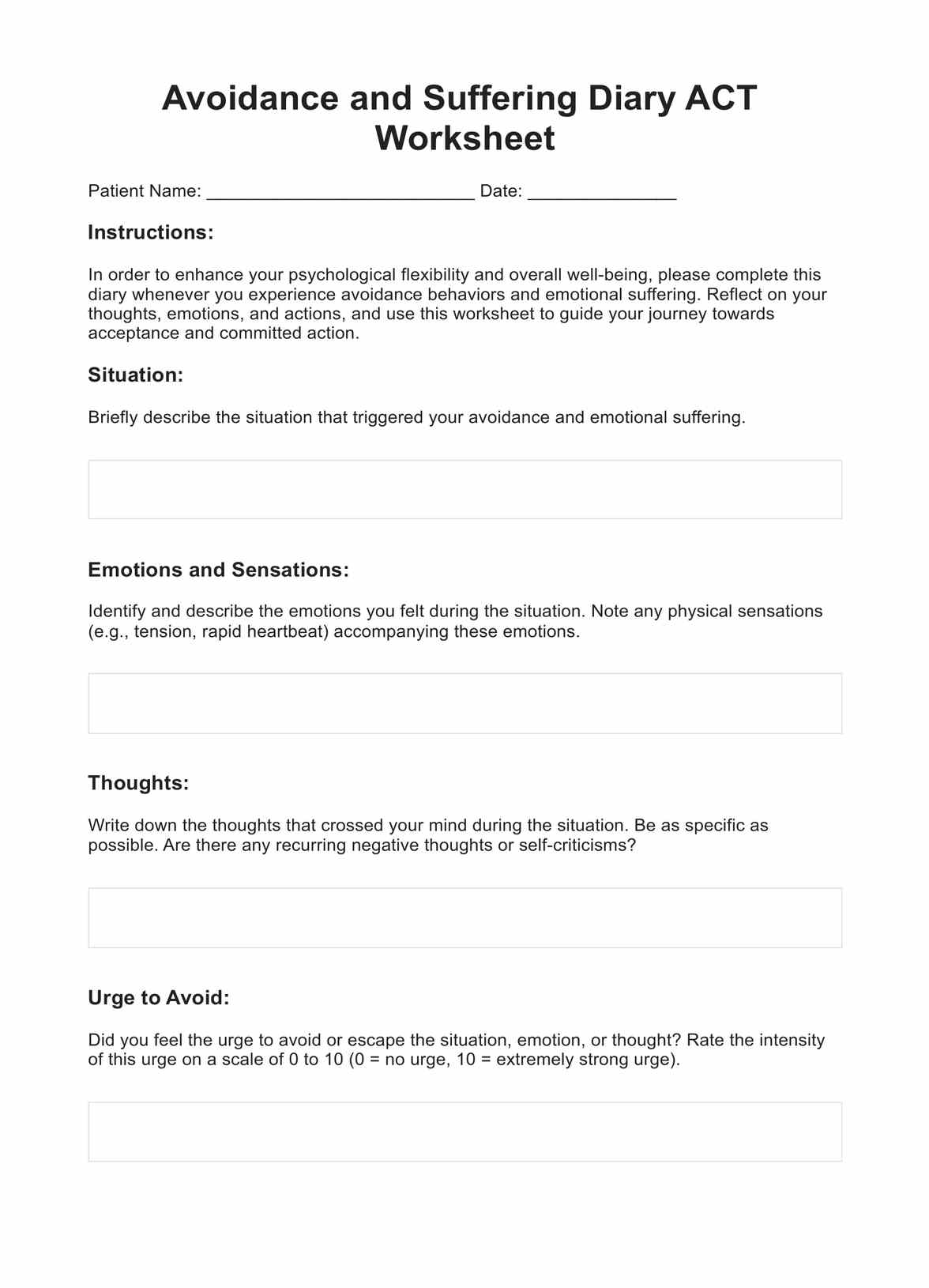
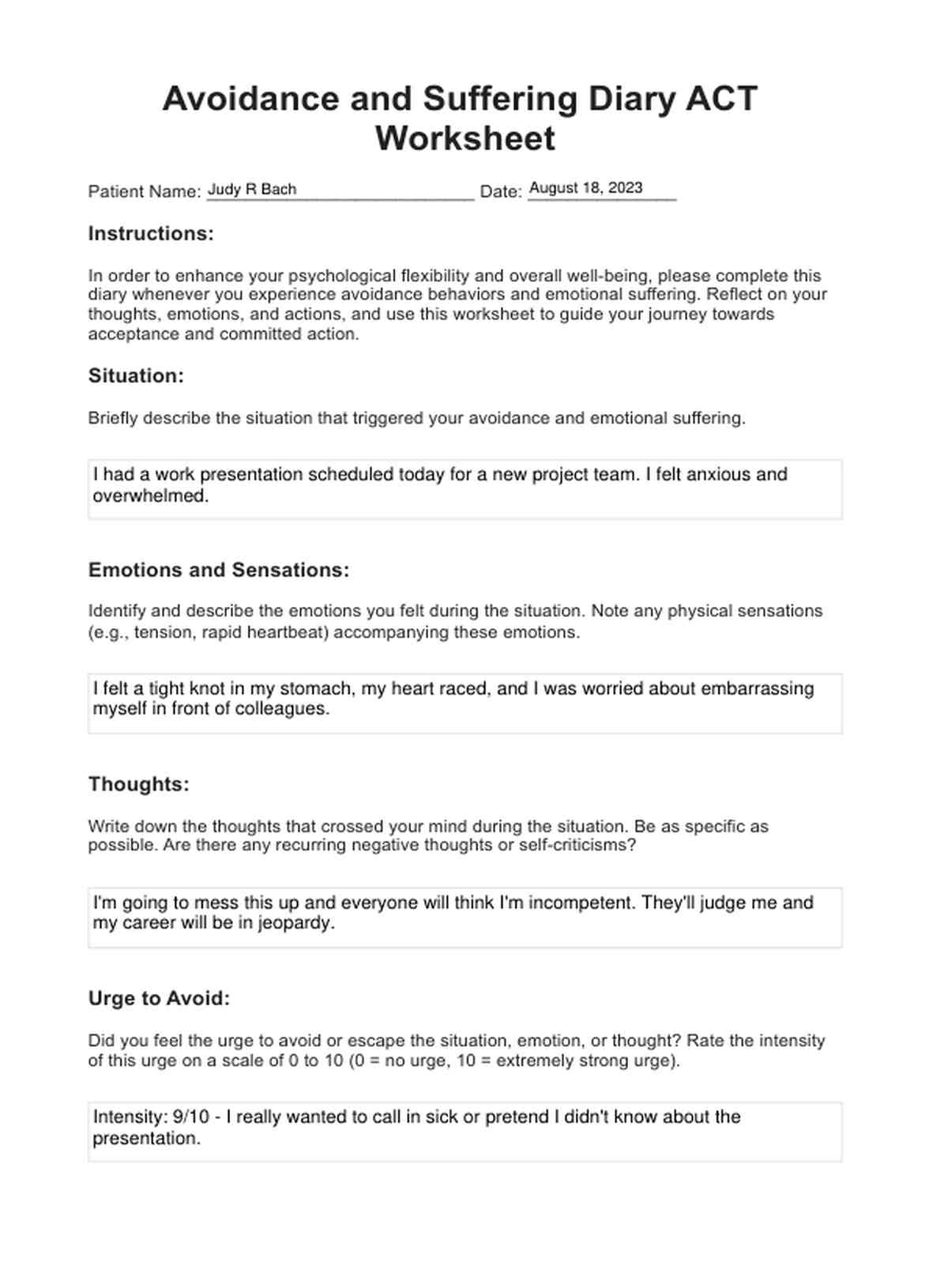















-template.jpg)





















































































